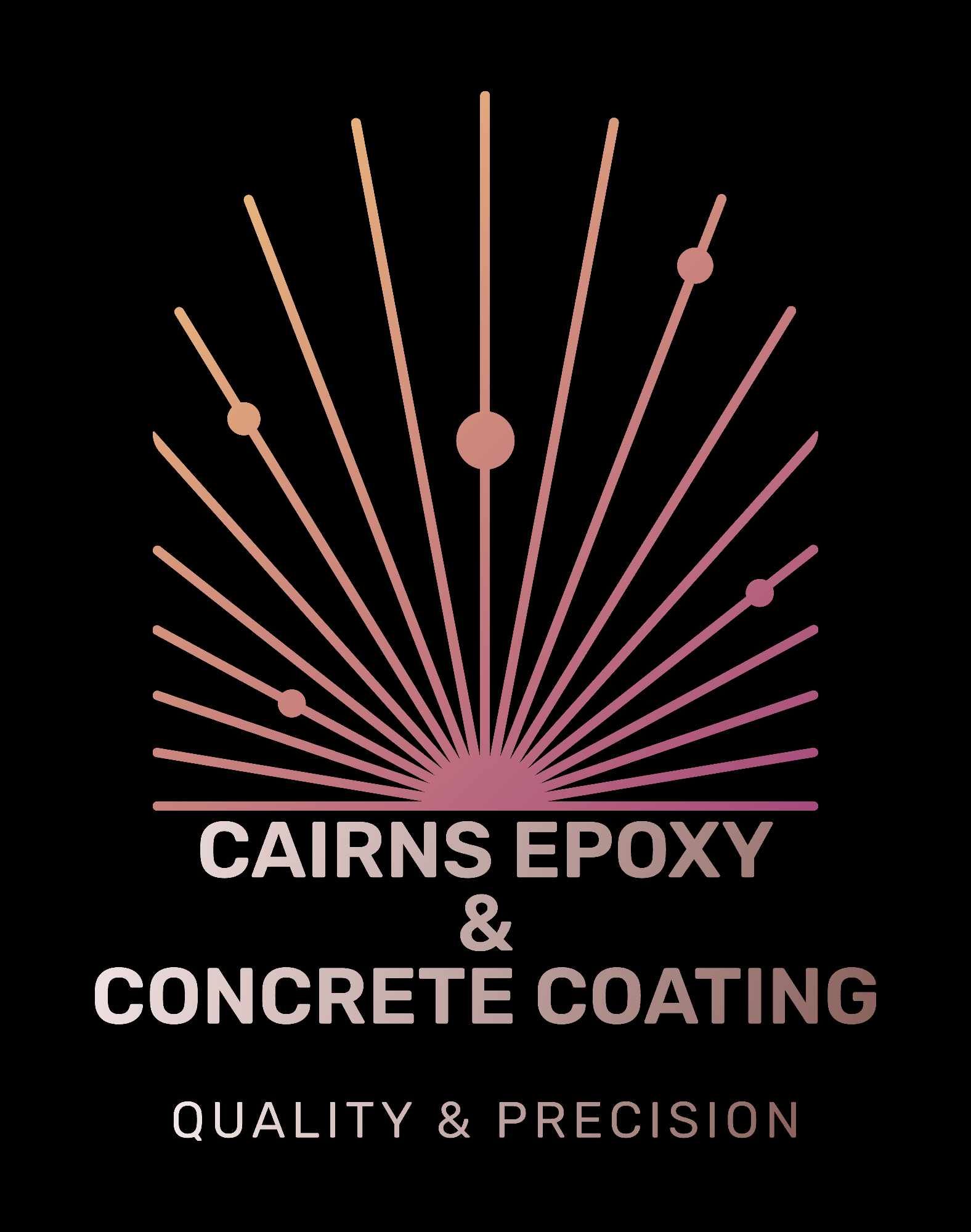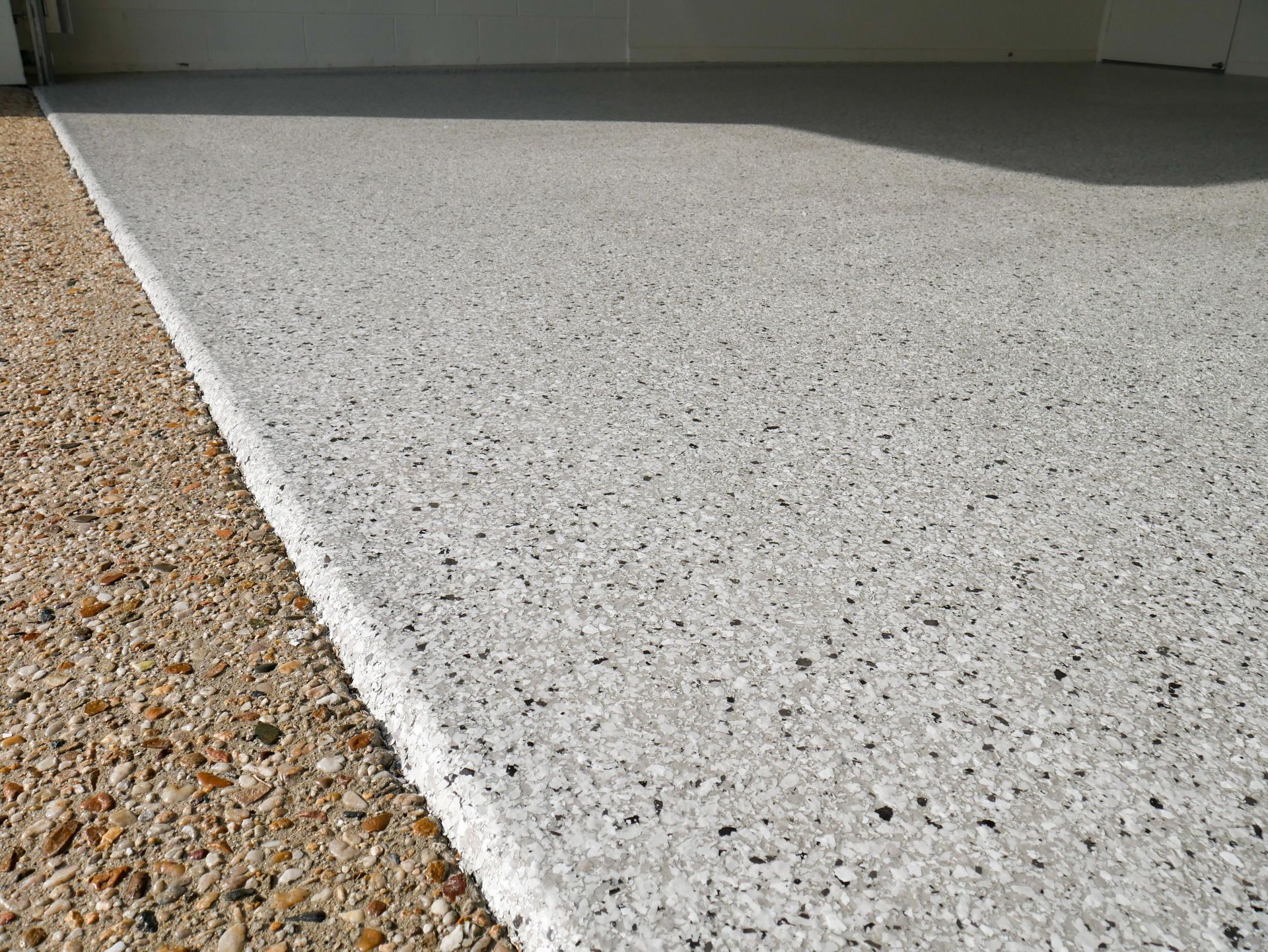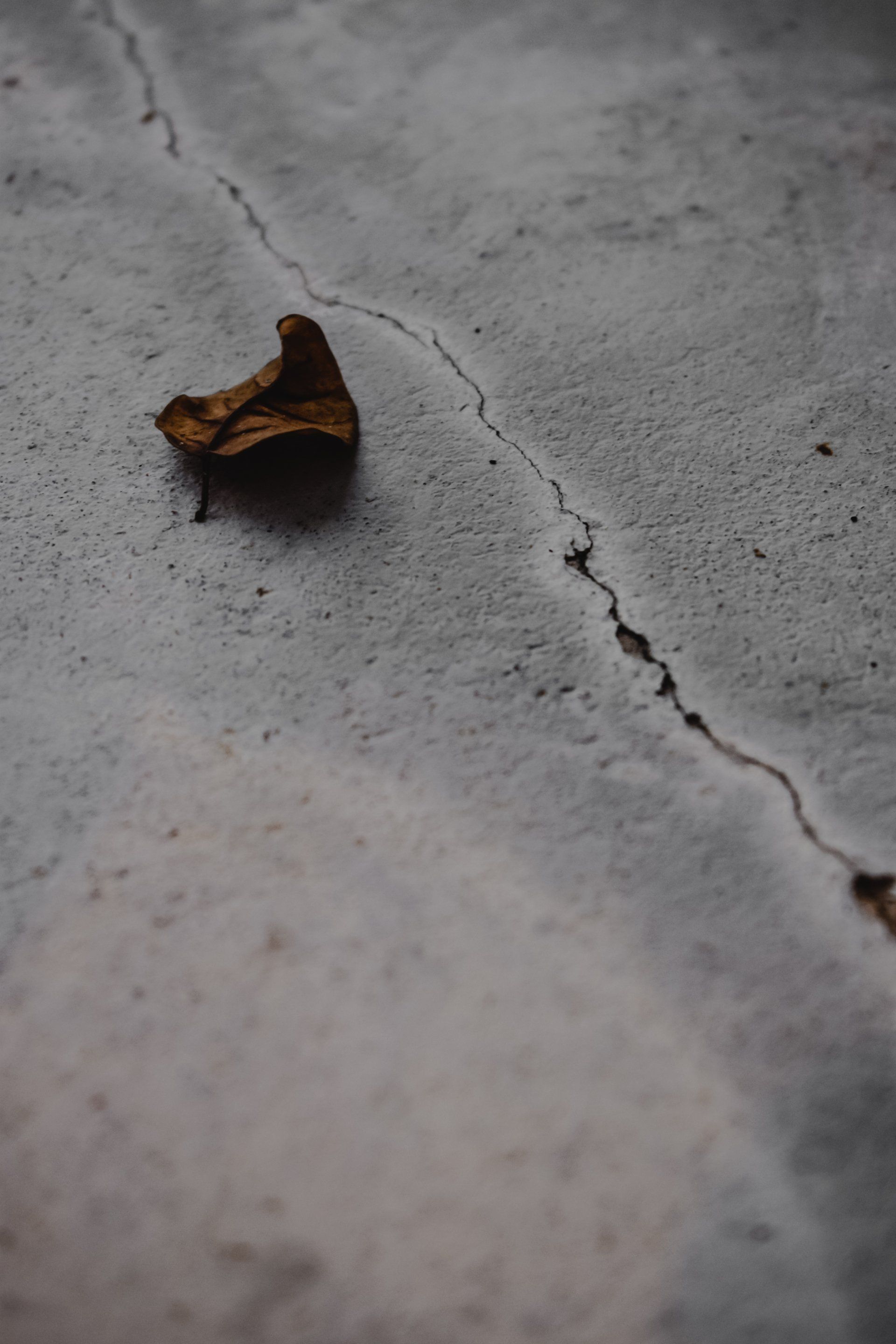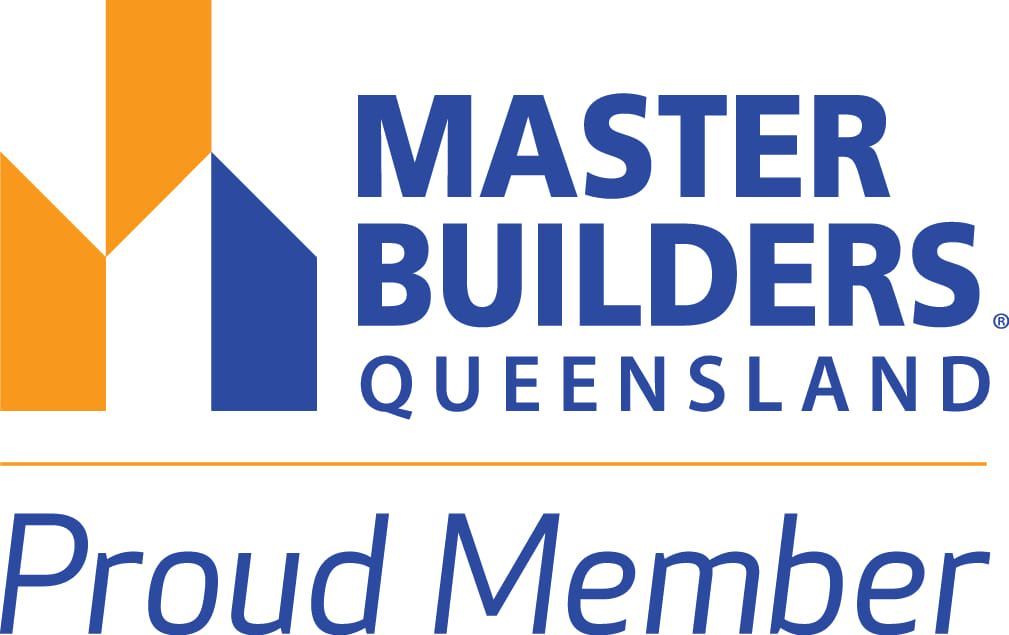residential & commercial EPOXY FLOORING
What is Epoxy Coating?
Epoxy flooring is one of the most resilient and durable finishes available. The term “epoxy” refers to both the materials used and the application process. Not only does it enhance the aesthetic appeal of floors, but it also offers significant protection against wear, potentially saving thousands of dollars in repairs and replacements.
Epoxy floors are popular in residential flooring & driveways, industrial sites, warehouses, commercial kitchens, and residential garages because they:
- Require minimal maintenance
- Resist oil and water stains, UV fading, chipping, peeling, chemicals, and heavy weights
- Simplify the maintenance of clean and safe conditions for workers and equipment
- Provide anti-slip surfaces, making them ideal for swimming pool decks and kitchens
It is important to differentiate between epoxy coating and epoxy paint. Epoxy flooring typically involves epoxy coating, which is highly resistant to weight and regular use, making it a preferred choice in commercial, industrial, and manufacturing settings.
Epoxy coating consists of a resin component mixed with a polyamine hardener. It is applied under specific temperature and time conditions once it has adequately dried. Epoxy floor coatings are often used in areas with light vehicular traffic or heavy foot traffic, such as schools and hospitals, to extend the life of concrete floors.

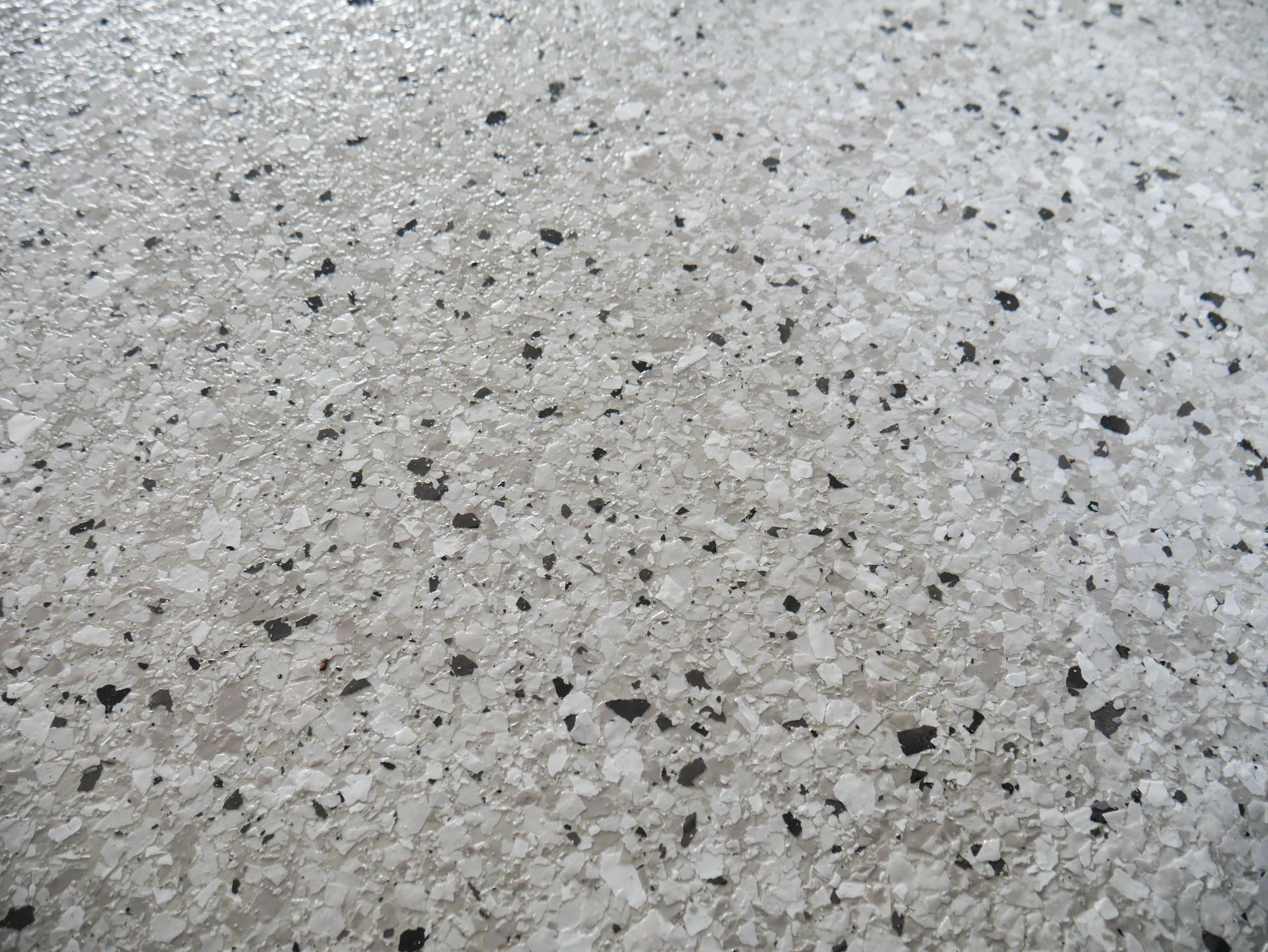
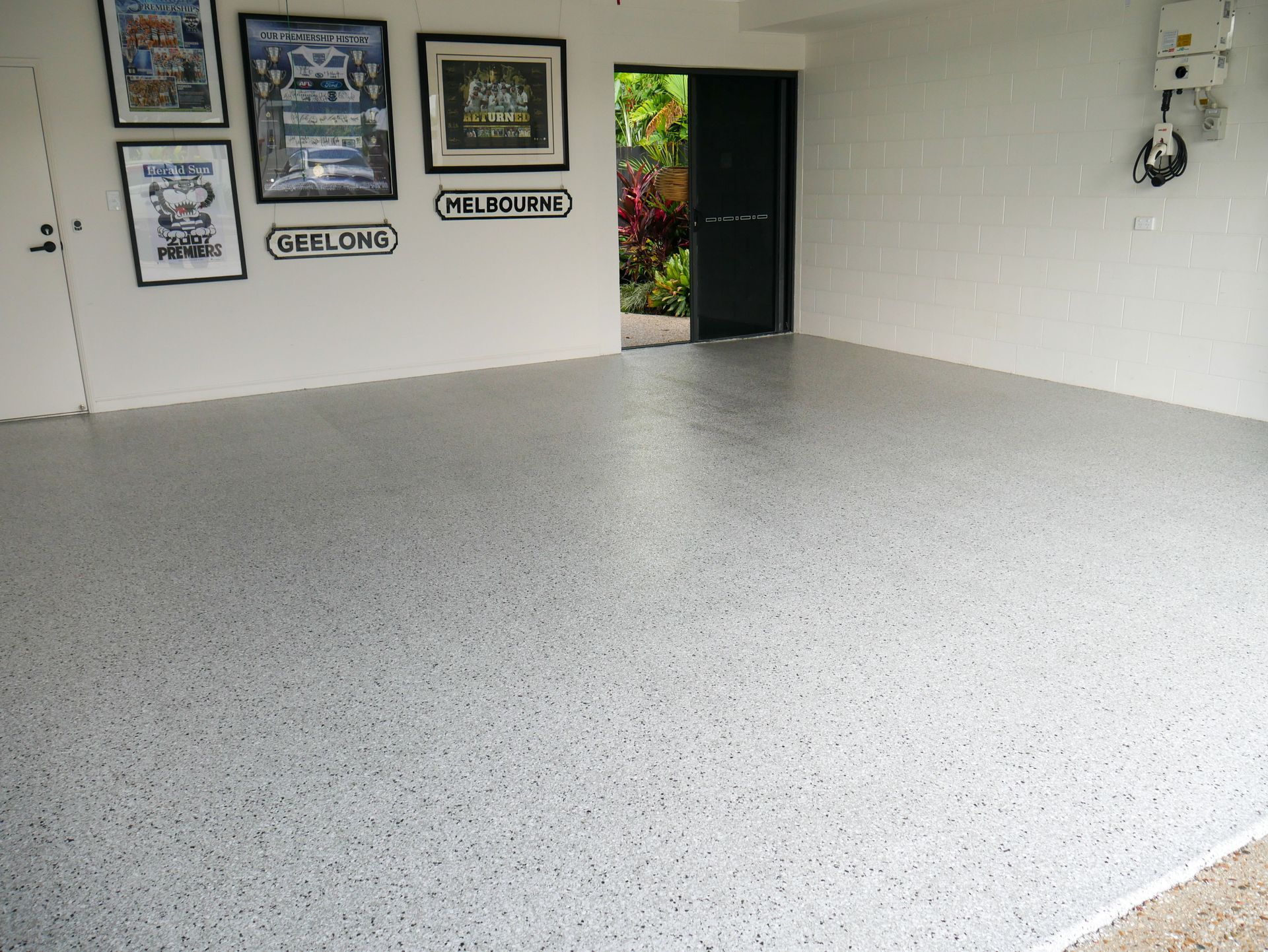
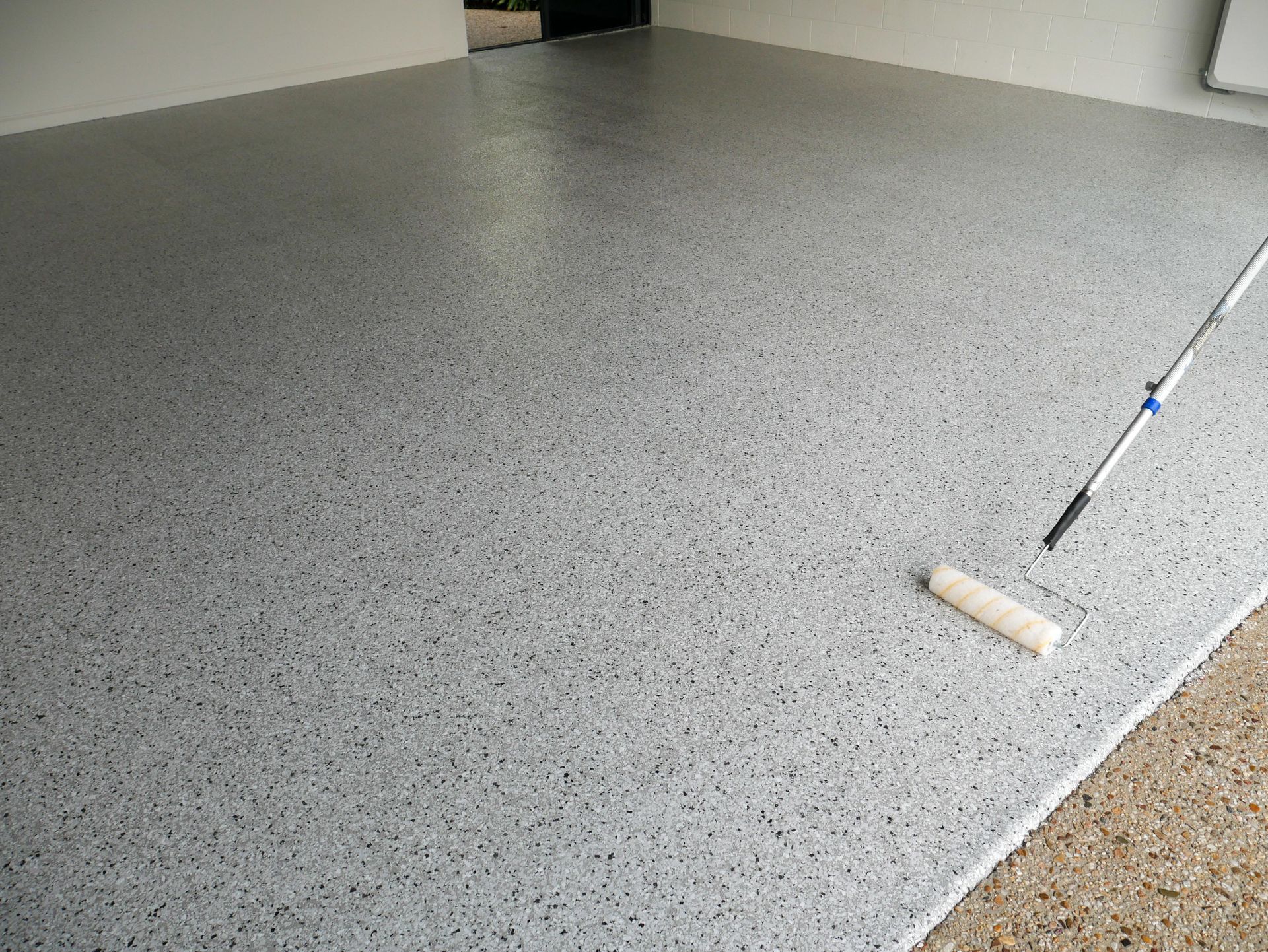
Benefits of Epoxy Flooring:
- Provides an attractive surface for offices, residential homes, and showrooms
- Easy to apply and quick-drying
- Creates a high-gloss surface ideal for bright interior areas
- Can be applied over concrete floors to create a durable, smooth surface that withstands heavy loads and continuous traffic, commonly used in garages
- Helps prevent chemical breakdowns
- Masks chips and cracks when combined with paint
- Can be applied to cement and garage floors, as well as walls and ceilings in some cases
Certain environments, such as hospitals, food preparation facilities, and veterinary clinics, require specific hygiene levels. A specialized epoxy coating can be formulated to provide antimicrobial and antibacterial protection while maintaining the aesthetic and practical benefits of standard epoxy flooring.
FAQs
Got a question? We’re here to help.
Explore Our Other Services
